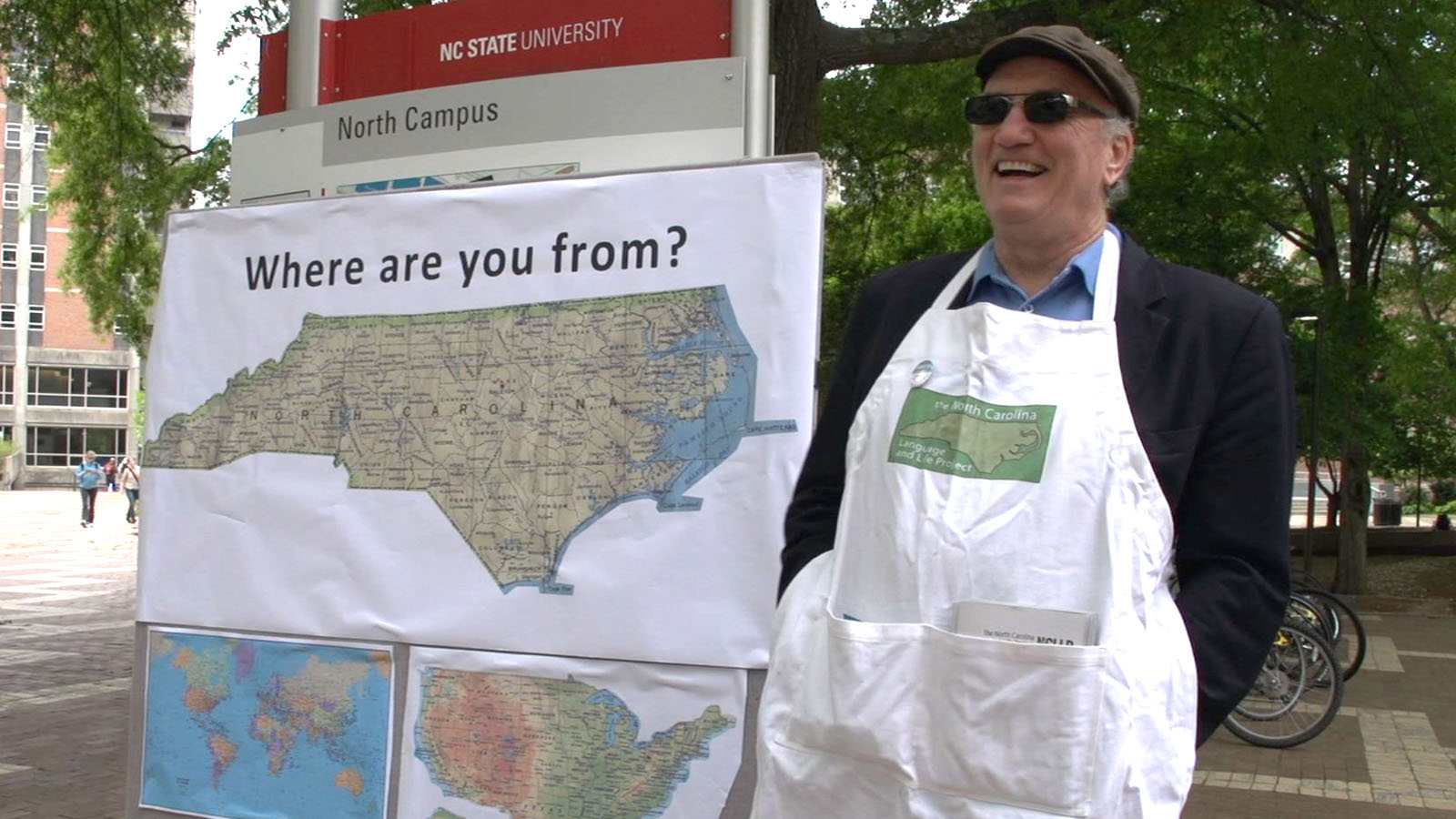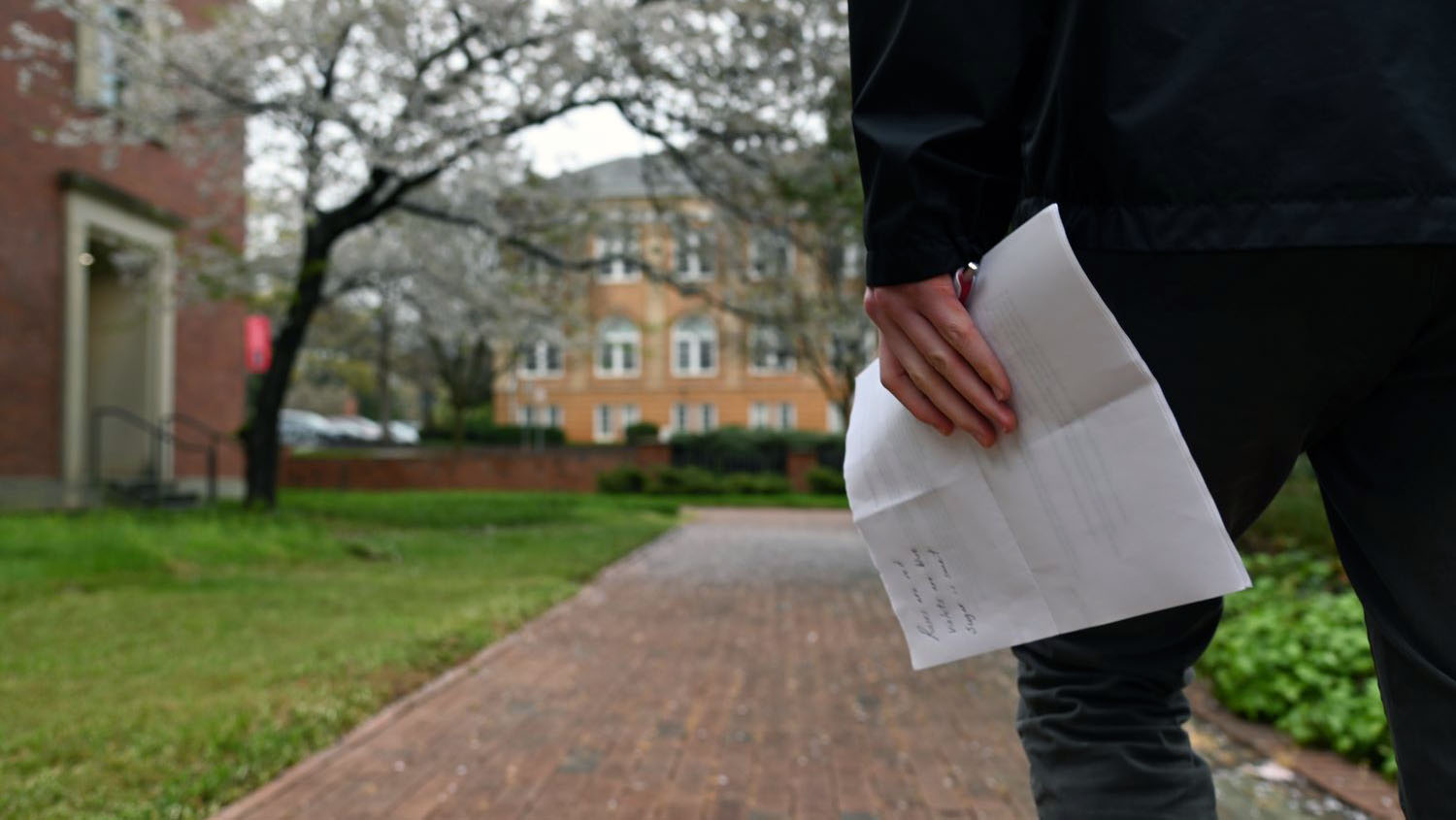NC State Initiative Sets Gold Standard for Language Diversity

When it comes to diversity in higher education, language may not be the first thing that comes to mind.
But at NC State University, dialect is very much part of the conversation. Since it was developed here in 2012, a first-of-its-kind language diversity program has reached thousands of NC State students, faculty and staff. Through workshops, trainings and other programming, the initiative entitled Educating the Educated has sought to dispel some misconceptions and myths about “correct” or “proper” language and to illuminate how dialects reflect identity.
Now the impact of NC State’s innovative program is expanding far beyond its Raleigh campus. More than a dozen other universities, from Pennsylvania to Hawaii, have expressed interest in adapting the program model at their institutions.
Student affairs professionals are also taking notice. This week, the National Association of Student Personnel Administrators (NASPA) is awarding the program its grand gold medal for excellence, a prestigious recognition earned among 180 competing higher education programs.
“I think that people are recognizing how needed this is — how novel it is,” said Walt Wolfram, a co-director of the program and the William C. Friday Distinguished Professor of English Linguistics at NC State. “Diversity has to be open to new areas of undisclosed or invisible prejudice and micro-aggressions. This is not only another component of diversity, but one that affects how we address the more traditional components like race, ethnicity, gender, etc.”
A university-wide endeavor, Educating the Educated leverages resources in two NC State colleges and the Division of Academic and Student Affairs. In addition to Wolfram in Humanities and Social Sciences, the other co-directors are Stephany Dunstan, associate director of the Office of Assessment, and Audrey Jaeger, a professor of higher education in the College of Education.
Rooted in Research
The idea behind Educating the Educated started while Dunstan was pursuing her doctoral degree at NC State. For her dissertation, she studied how having an Appalachian English dialect influenced student experiences on campus. Collecting qualitative data from interviews with 26 students, Dunstan found that some students with elements of non-standardized speech felt unwelcome and uncomfortable in certain courses, departments and social situations. That sentiment wasn’t necessarily shared by students whose speech was more standardized.

“Based on those findings and my own experiences, I realized there was a need for some type of outreach programming on campus,” Dunstan said. “Given the national climate, with a lot of issues and conversation stemming from student/faculty diversity and how it is or is not represented on campus, this was another way of talking about issues of diversity that allows people to link complex ideas together.”
Dunstan began the first language diversity workshops with undergraduate students in a handful of courses, including classes with preservice teachers. After the initial feedback was positive, she teamed with Wolfram and Jaeger to expand the program to university faculty and staff.
“Because this largely hasn’t been addressed before, it’s something everyone can learn about,” Jaeger said. “When you’re at a certain level in your education, you may say, ‘I already know this or that and turn off the switch.’
“But most people have no clue about language diversity, and we are trying to enhance that knowledge.”
Multipronged Effort

The core of the initiative’s programming consists of workshops and trainings that have reached student, academic and faculty affairs offices across campus. Ranging from university housing to new faculty, Dunstan said she, Wolfram and Jaeger have dissected organizational charts to strategically target the broadest audiences.
Educating the Educated has also spurred an Alternative Service Spring Break trip that allows participants to teach K-12 students about language variation. In addition, the program names student ambassadors each year who help increase awareness across campus.
“One of the things other universities have asked me is, ‘Did you receive any hostility from this?’” Wolfram said. “What we’ve found is that our Office of Institutional Equity and Diversity is always looking for new programs.
“When we gave these talks, people welcomed the fact that it wasn’t the same diversity talk — ‘Oh you’re going to talk about language; I’ve never thought about that.’”
Jaeger said since the initiative is interdisciplinary in nature, she, Dunstan and Wolfram all have different networks that can help grow awareness not only on campus, but elsewhere. Thus far, they’ve consulted or shared information with a growing list of interested institutions, including the University of Hawaii Manoa, University of Washington, University of Michigan, University of Mississippi, West Virginia University and Stanford University.
NASPA is awarding its grand gold medal to Educating the Educated at its annual conference, where Dunstan and Jaeger also gave a presentation on the program.
To learn more about Educating the Educated, go to go.ncsu.edu/EducatingTheEducated.


